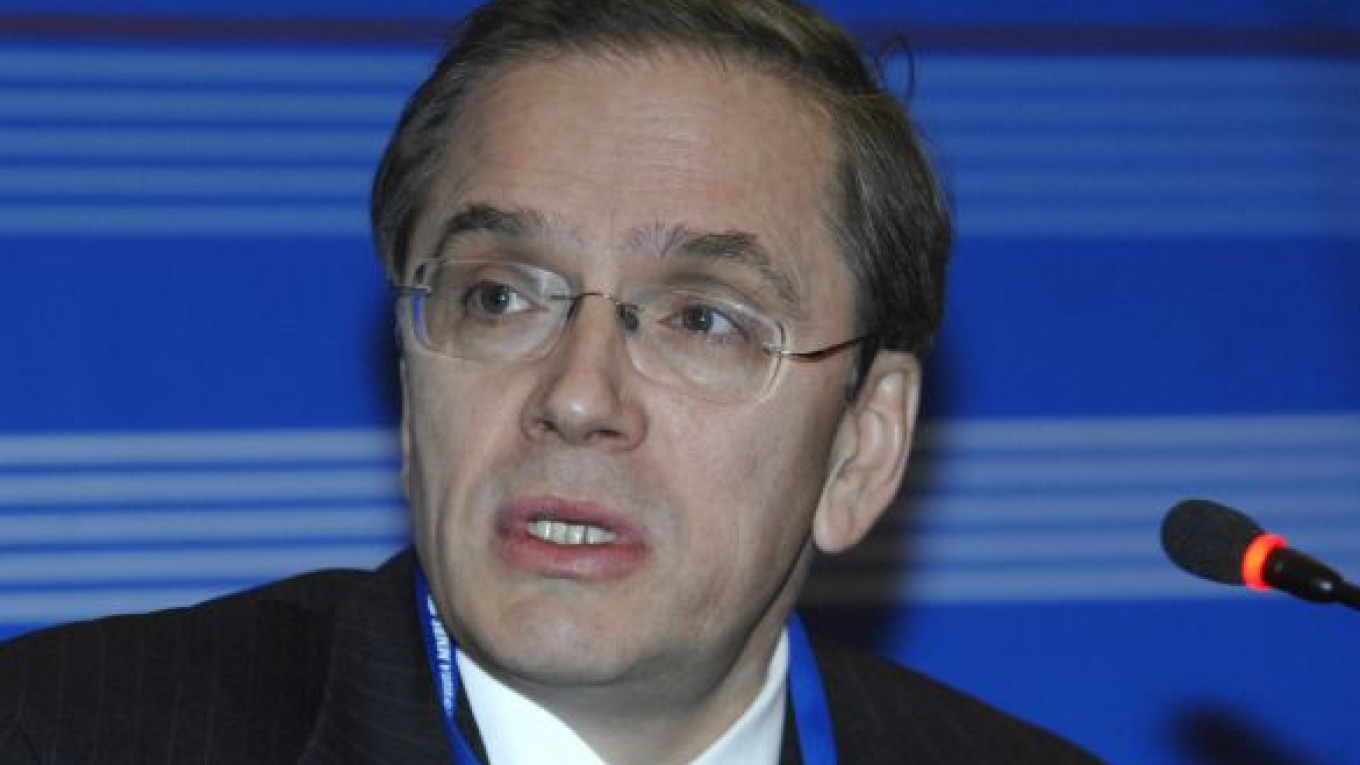The weekend meeting of the Group of 20 leading economies is expected to pit European calls for fiscal austerity against U.S. warnings that spending curbs threaten an already fragile recovery of global demand.
"We think without fiscal consolidation it will not be possible to have strong economic growth," Pankin said at a Euromoney investment conference in London.
"Our position is that countries should take serious steps in fiscal consolidation, especially Europe and the U.S."
In a letter released before this week's G20 summit, U.S. President Barack Obama said public finance problems should be addressed in the medium term — effectively warning that fiscal discipline should not be carried out at the expense of economic recovery.
Faced with a euro-zone debt crisis, however, several European nations, including Germany, are focused on cutting ballooning deficits.
Despite higher state spending, Russia is aiming for a lower budget deficit this year on the back of higher oil prices, targeting a shortfall of 5.4 percent of gross domestic product instead of an originally planned 6.8 percent.
Pankin also said the recent volatility of the euro would not prompt Russia to change the composition of its foreign-currency reserves, saying the country had benefited somewhat from the currency's recent weakness.
"All this turbulence doesn't mean that when the euro goes down we need to diminish reserves in euros. We take a long-term approach in reserves," he said.
The euro has fallen by about 14 percent against the dollar this year. Shifts in major central banks' policy on how they divide up their hard currency reserves are one factor watched closely by the market, and Russia has among the world's largest, swollen by oil dollars over the past decade.
Pankin also said a weaker euro wasn't entirely negative for Russia.
"There are some advantages for Russia as our major exports, oil and gas, are in dollars and major imports are in euros. So there are some advantages in terms of trade. But the instability means less flows for investors."
A Message from The Moscow Times:
Dear readers,
We are facing unprecedented challenges. Russia's Prosecutor General's Office has designated The Moscow Times as an "undesirable" organization, criminalizing our work and putting our staff at risk of prosecution. This follows our earlier unjust labeling as a "foreign agent."
These actions are direct attempts to silence independent journalism in Russia. The authorities claim our work "discredits the decisions of the Russian leadership." We see things differently: we strive to provide accurate, unbiased reporting on Russia.
We, the journalists of The Moscow Times, refuse to be silenced. But to continue our work, we need your help.
Your support, no matter how small, makes a world of difference. If you can, please support us monthly starting from just $2. It's quick to set up, and every contribution makes a significant impact.
By supporting The Moscow Times, you're defending open, independent journalism in the face of repression. Thank you for standing with us.
Remind me later.


